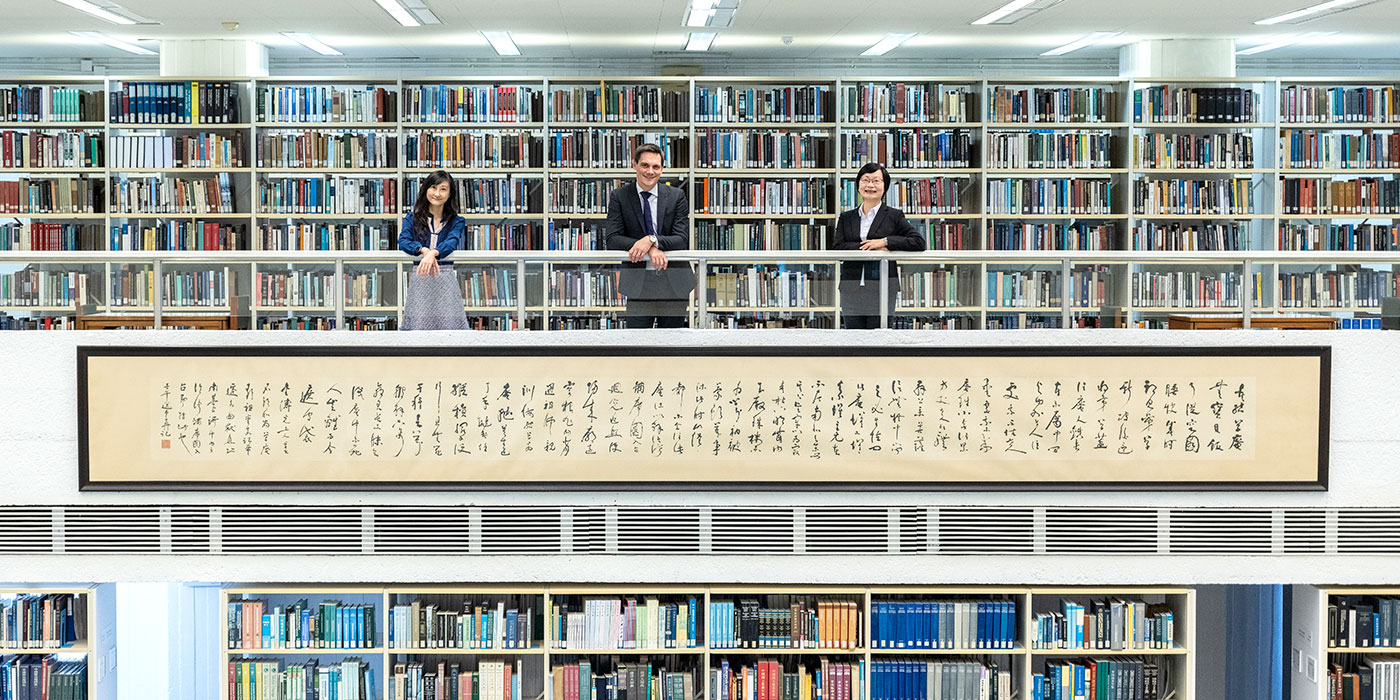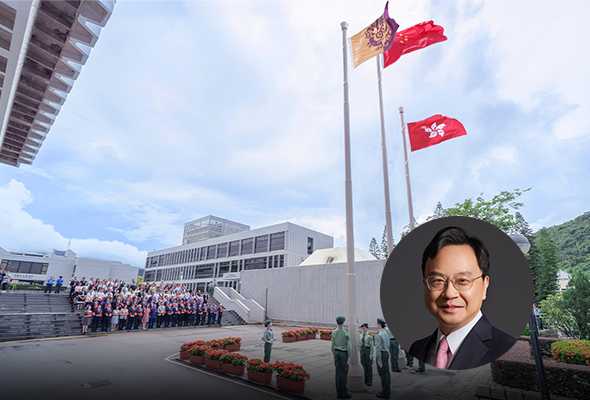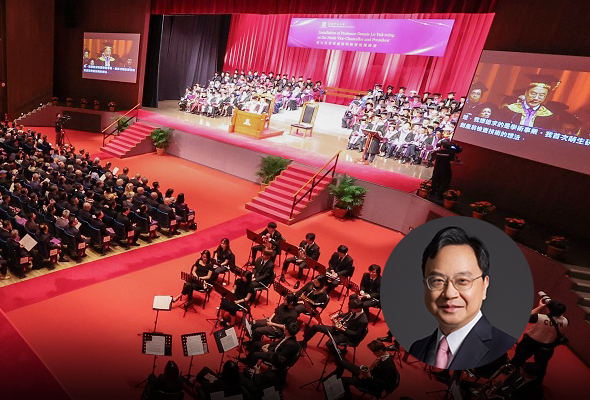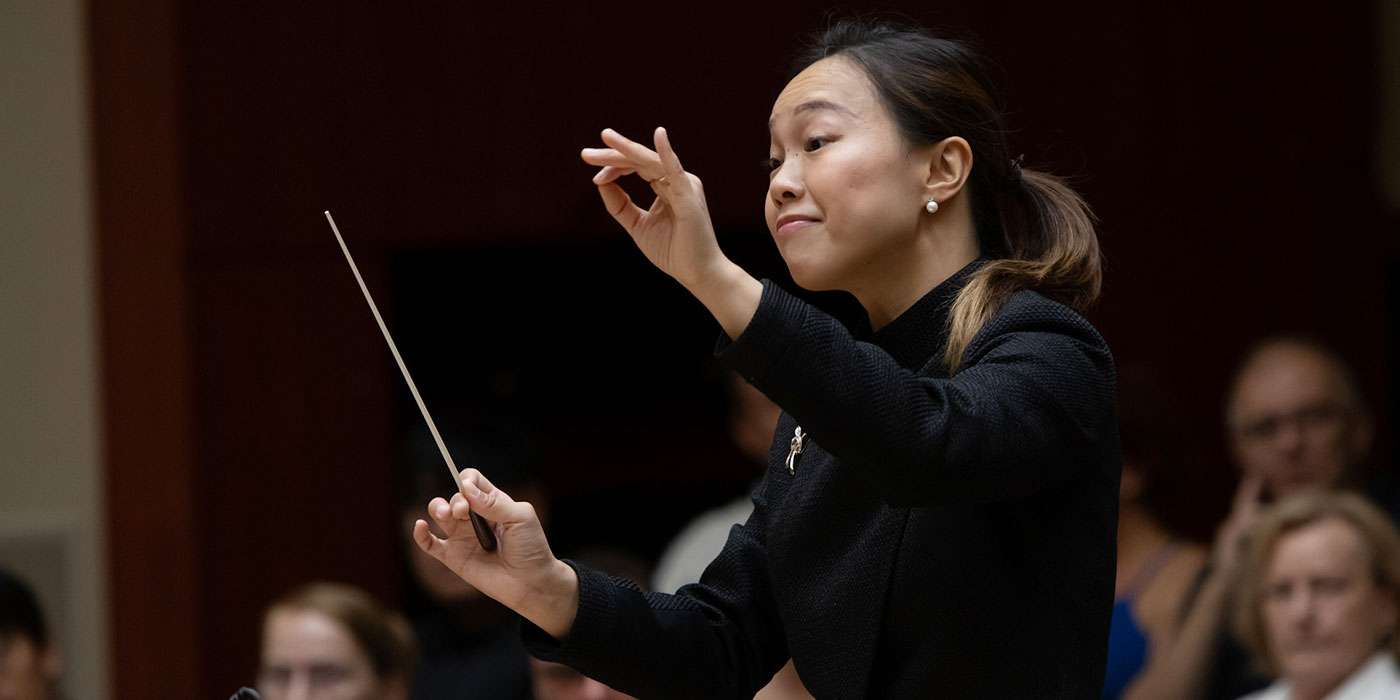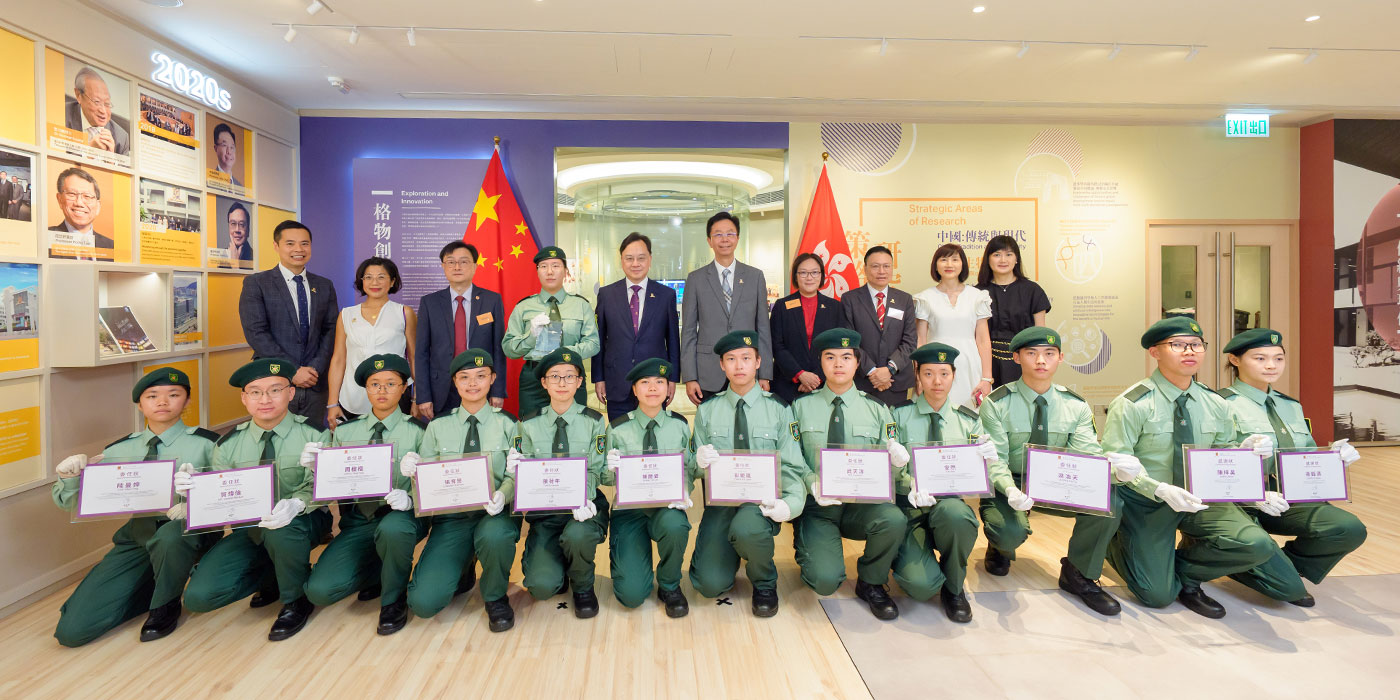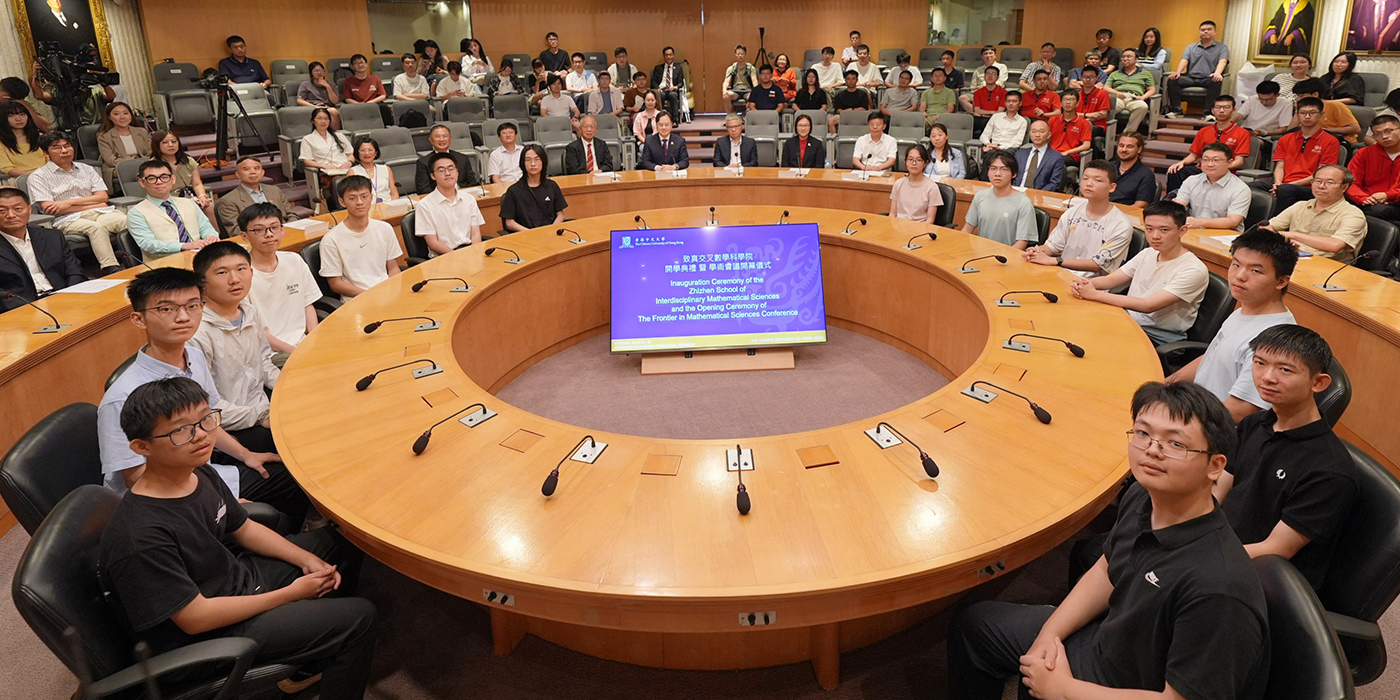Knowledge for all
CUHK Library and Press unlock a world of information
An open access website was launched at the 2024 Hong Kong Book Fair in July on the belief that knowledge is priceless and should be freely available. CUHK is one of the platform founders.
As its first offerings to the project, CUHK Press presented three new books about Confucian philosophy, environmental history, and social life in South China. The books were sold at the one-week fair to readers who preferred the feel of the printed page; at the same time, they have been uploaded to Open Books Hong Kong (OBHK), a pioneering initiative set up jointly with two other university presses to share knowledge without attaching a price tag to it.
“We hope to make knowledge more widely available and allow the public to understand how the world works and read about the latest findings from our academic authors,” University Librarian Benjamin Meunier tells CUHK in Focus.
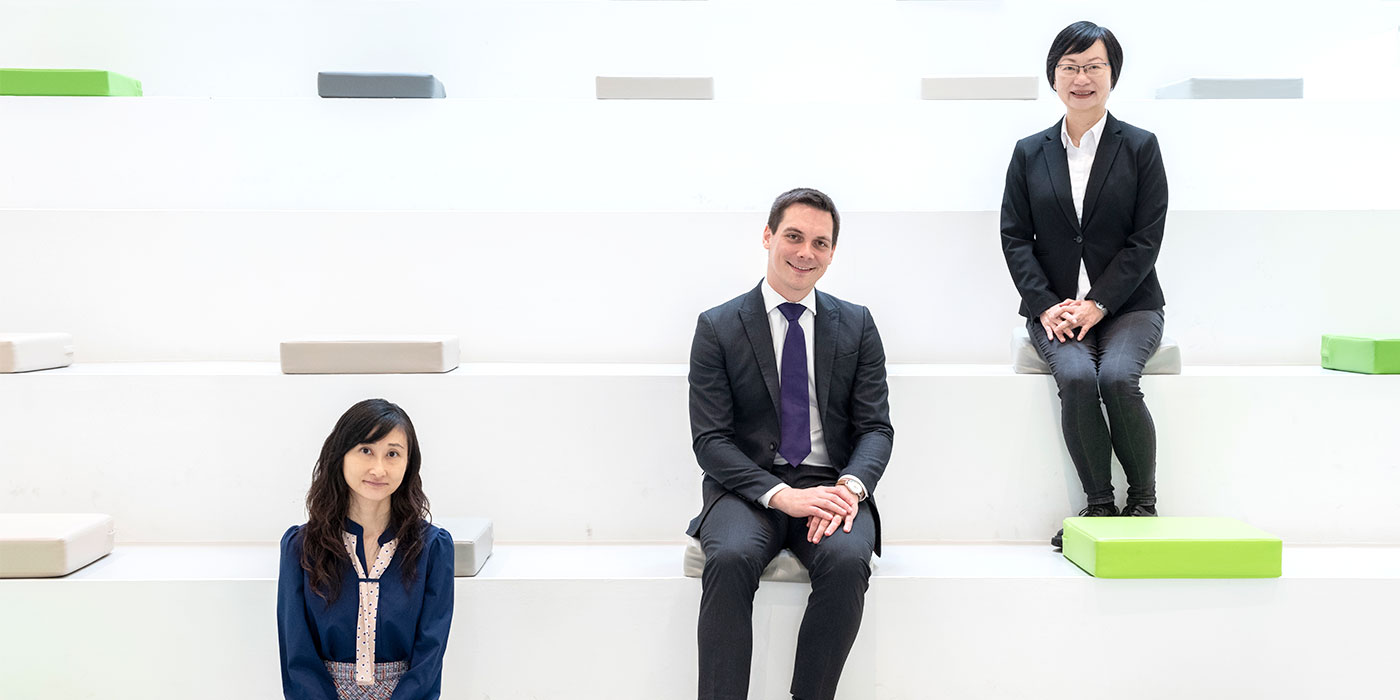
Open Books HK: A key to learning
The initiative is a collaboration between the libraries and presses of CUHK, the City University of Hong Kong (CityU) and the University of Hong Kong (HKU).
Each of the trio has provided three Chinese-language titles about the humanities and social sciences, making up nine works released on the OBHK website so far. CUHK Press’ contributions include three monographs: Inheritance and reinvention: Neo-Confucian Philosophy from Song-Ming to Contemporary, The People’s West Lake: Propaganda, Nature, and Agency in Mao’s China, 1949–1976, and Tracing China: A Forty-Year Ethnographic Journey.
Chinese-language books are a challenge for overseas readers to buy due to constraints in the publishing industry’s traditional distribution channels. CUHK hopes to see Chinese publications more accessible around the world, realising the role of Hong Kong as a connector between China and the West.
“The initiative aims to address the existing gap in open access to Chinese-language monographs,” Meunier says. “We felt we could generate stronger impact by working together with the other two university partners than if we each tried to do our own separate projects.”
CUHK Press’ impressive collection of scholarly works, which goes on full display at the book fair year after year, forms a strong backdrop to its founding role in OBHK. A month after the launch on 17 July, the first day of the fair, Director of CUHK Press Gan Qi is excited about the encouraging response.
“We are eager to share the research results of our authors,” she says. “In the first month, the OBHK website recorded 263,000 views and 97,000 visitors from more than 100 countries and regions. Many readers have praised CUHK on social media for playing a pronounced role in academia and showcasing its strengths as a reputable university.”
Buoyed by the positive feedback, the three universities plan to add more books to the online platform towards the end of the year. CUHK also welcomes any interested parties to engage in this meaningful project. “Some of our mainland partners have expressed interest in the initiative we are conducting in Hong Kong. We are happy to have other institutions join the scheme and broaden it,” says Meunier.
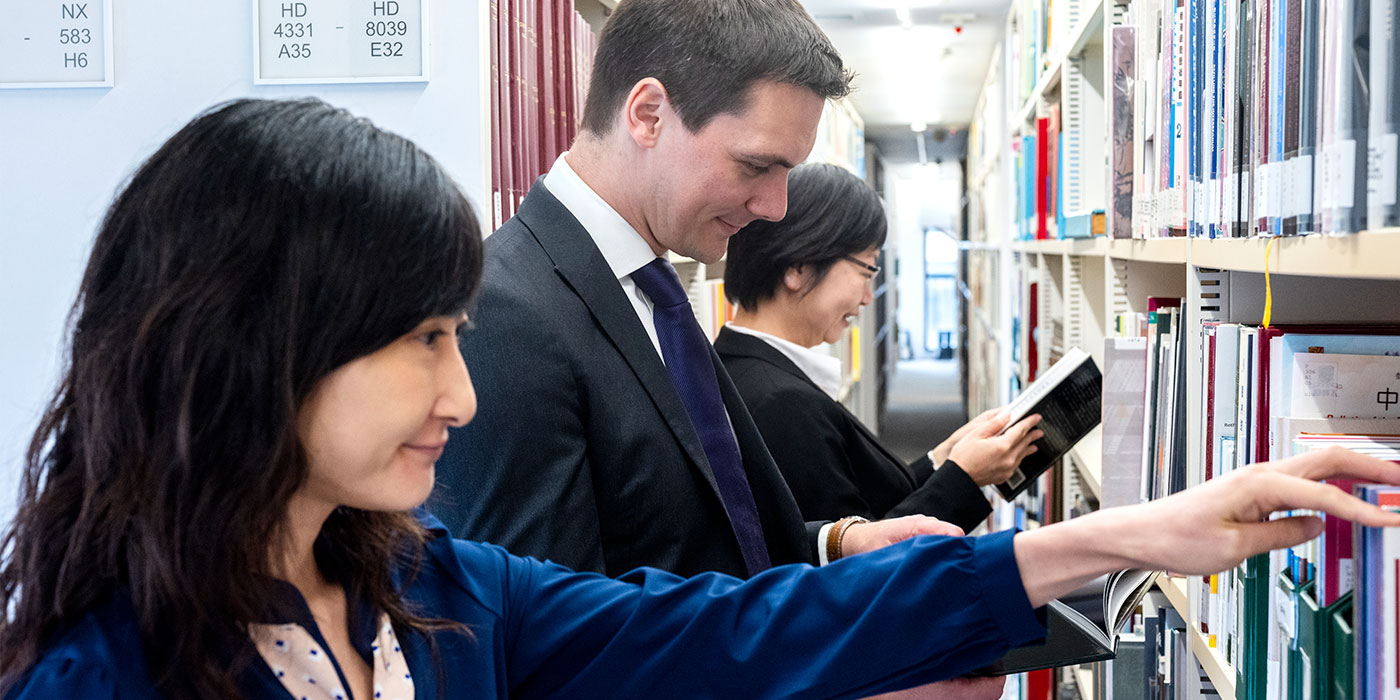
Drive for research openness
Open access benefits not only readers at large, but also researchers and the research ecosystem. In the bigger picture, OBHK is one of the channels through which CUHK manifests its belief in knowledge sharing; the CUHK Open Access Publishing Plan, which started four years ago, is another.
The transformative agreements with publishers help researchers make their research outputs much more visible to the research community, and collaborating with JULAC libraries, CUHK Library has been tireless in its negotiations with different publishers to come on board. Head of Scholarly Communications Dr Ella Fu explains: “In the beginning, we had open access agreements with only two publishers. Now that we have come to the fourth year, the number has grown to 23.”
The CUHK Library’s Head of Research and Learning Support Lily Ko adds: “Open access allows researchers to make a difference to the world by expanding their research impact. We are striving towards this global movement, just as other great universities around the world are doing.”
That being said, the rise of open access has raised concerns about research ethics and integrity. The Library is actively addressing these concerns and is committed to providing its users with guidelines with other CUHK units. Ko says: “Our library user guides highlight key messages about upholding research integrity and ways to avoid predatory journals.”
Research data is another key area of knowledge sharing. Last year, CUHK Library launched the Data Champions programme to promote research data management in the eight faculties of CUHK. Meunier stresses that open data does not mean compromising data privacy or integrity.
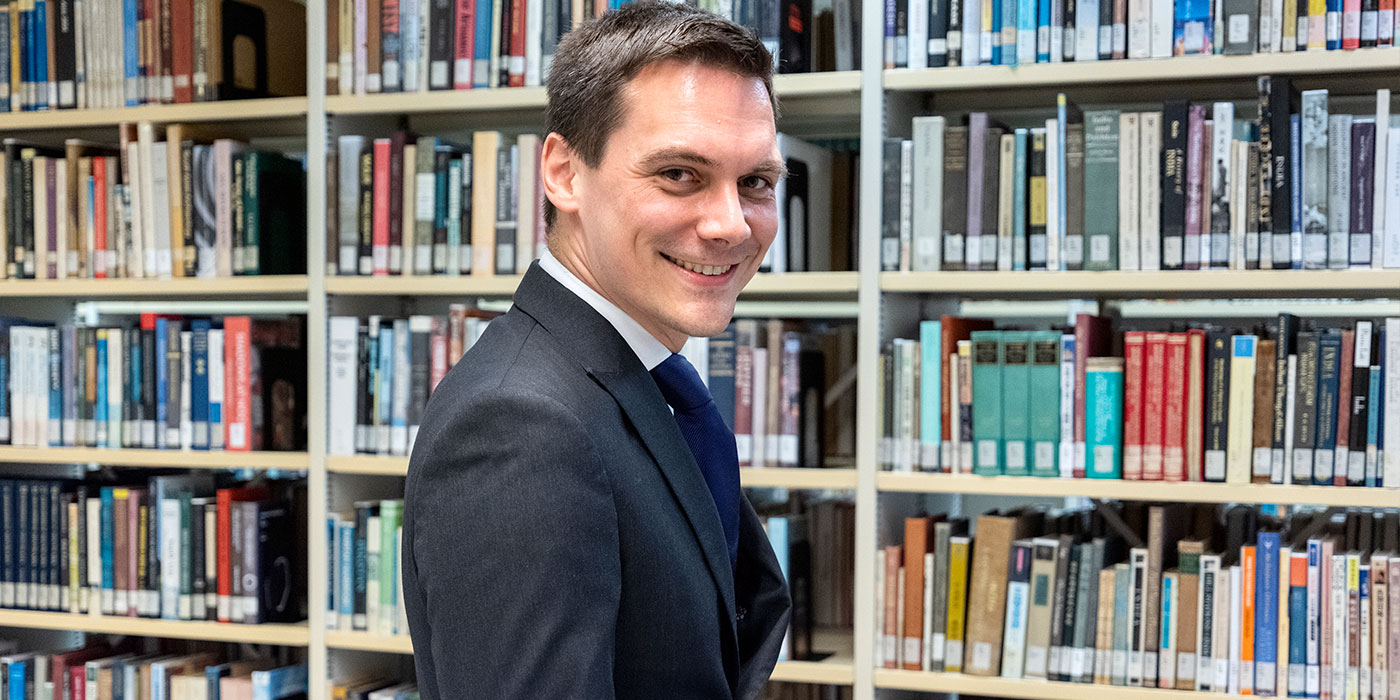
On the contrary, he adds: “Open research does not refer to the opening of all kinds of data. Instead, data should be open where it is possible, and should be closed where it is necessary. As we are rigorous about how the data is produced, open science is able to protect reliable and accurate research data.”
Open research is also about building a more trustworthy research ecosystem in the transformative artificial intelligence (AI) era. The Library will conduct customised Generative AI workshops in the coming semester to help students stay up to date with emerging technologies and learn to use Generative AI ethically and responsibly.
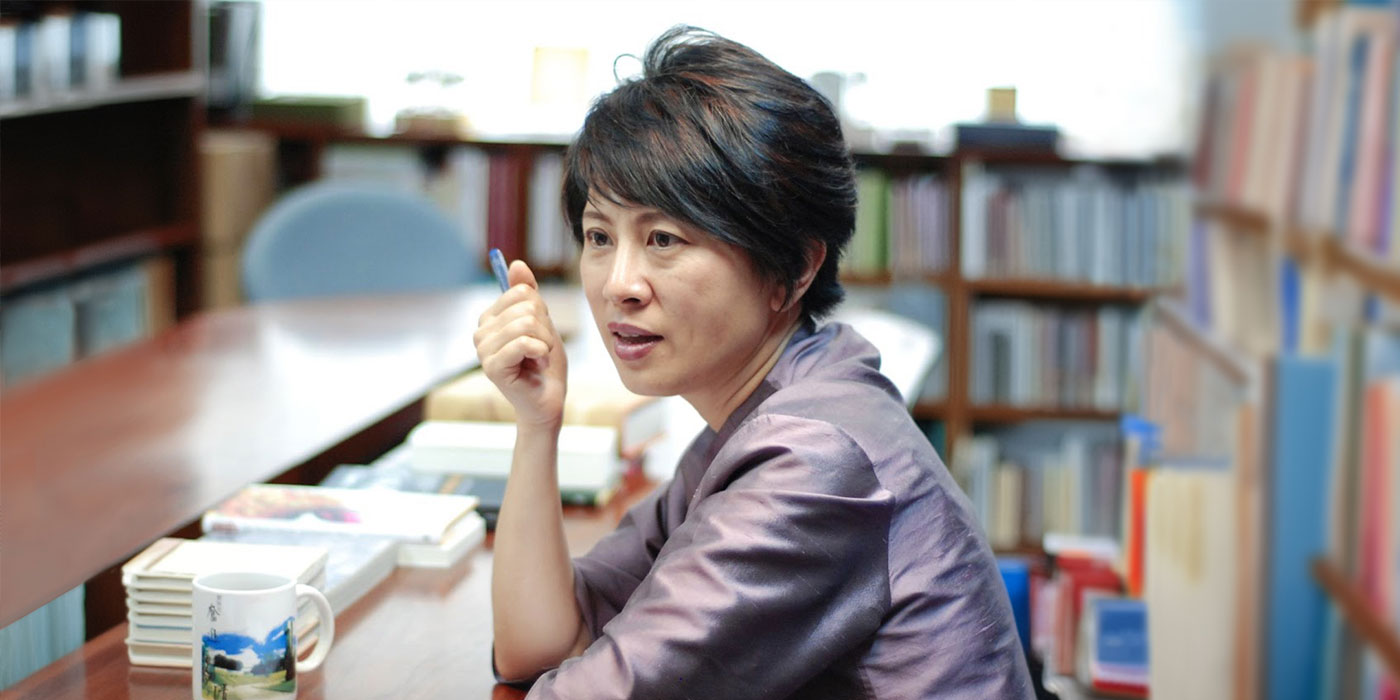
Path to open knowledge
CUHK is committed to promoting a wider dissemination of academic knowledge while maintaining a balance with copyright protection. All the books published via OBHK are covered by Creative Commons Licenses. Gan gives her point of view. “As Professor Cheng Chung-yi from the Department of Philosophy once said, ‘Academic knowledge should be copyrighted, yet it should also be a public resource for all’. We look forward to seeing more publishers, libraries, authors and the government joining hands to move towards open knowledge.”
By Gillian Cheng
Photos by LCT

